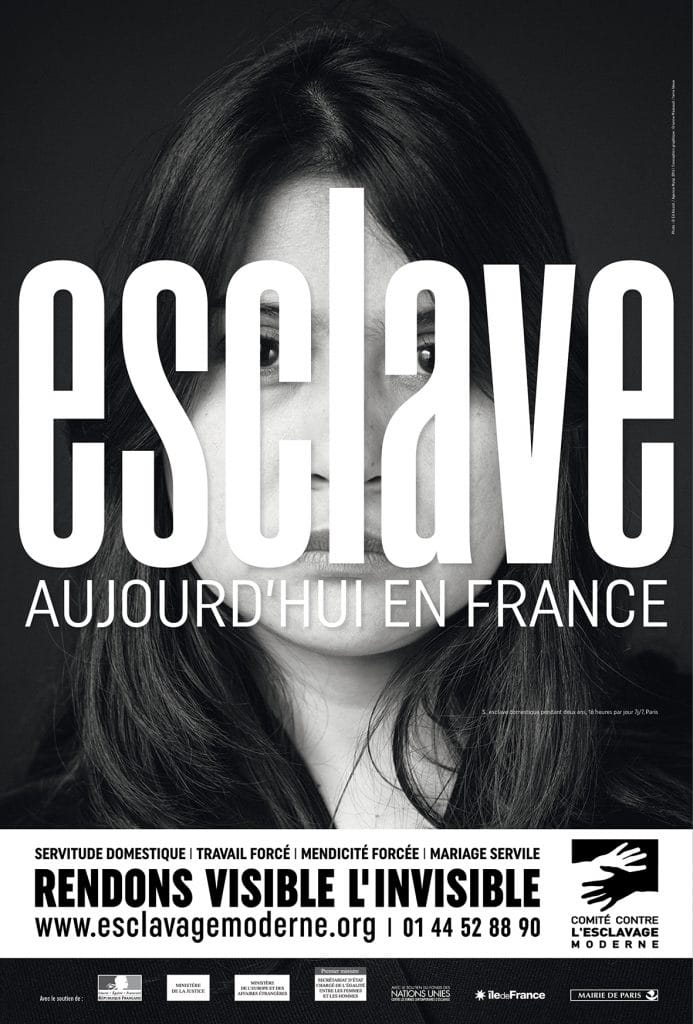OUR MISSION
According to the International Labor Organization (ILO), more than 40 million people are victims of modern slavery around the world (study conducted by the ILO, the International Office for Migration (IOM) and the NGO Walk Free in September 2017). Of the 40 million, 25 million were victims of forced labour and 15 million were victims of forced marriage. 71% of the victims were women or girls. This illegal activity generates $150 billion in illegal profits. Domestic work, agriculture, construction, manufacturing and services are among the most affected sectors.
The CCEM fights against all forms of slavery, servitude, and human trafficking for labour exploitation. It is based on Article 4 of the Universal Declaration of Human Rights:
“No one shall be held in slavery or servitude. Slavery and the slave trade are banned in all their forms “.
Created in 1994, the CCEM denounces all slavery around the world. It has become a reference in the fight against trafficking in human beings for the purpose of labour exploitation. The mandate of the CCEM includes victims of trafficking for the purpose of forced begging or for coercion to commit crimes. The CCEM supports victims, the vast majority of whom are women or girls in domestic servitude, but also men who are victims of human trafficking for economic purposes in construction, catering, craftsmanship, small business and agriculture. It provides them with an overall support, social as well as legal and administrative. These situations are found in all socio-economic contexts, from underprivileged suburbs, rural areas, privileged environments to diplomatic representations, but remain poorly known by the public. The CCEM also acts to raise awareness with professionals and the public and to enforce the legislation.
The CCEM’s lines of action stem from a comprehensive approach to effectively combat this scourge through prevention, protection, prosecution, partnership and advocacy: Our reception desk and community life, legal support, social work, advocacy and awareness and training.
This phenomenon does not spare Western countries, which are mainly destination countries and must therefore actively participate in combating this scourge. France amended its legislation in 2013 to align it with its international commitments. Sentenced twice by the European Court of Human Rights in 2005 and 2012, in both cases monitored by the CCEM, France even went further, introducing in August 2013 slavery, servitude and forced labour in the Penal Code. A National Action Plan against Trafficking in Human Beings brought both symbolic and effective recognition of the reality of these offenses, in 2014, but did not have sufficient means for its implementation.






